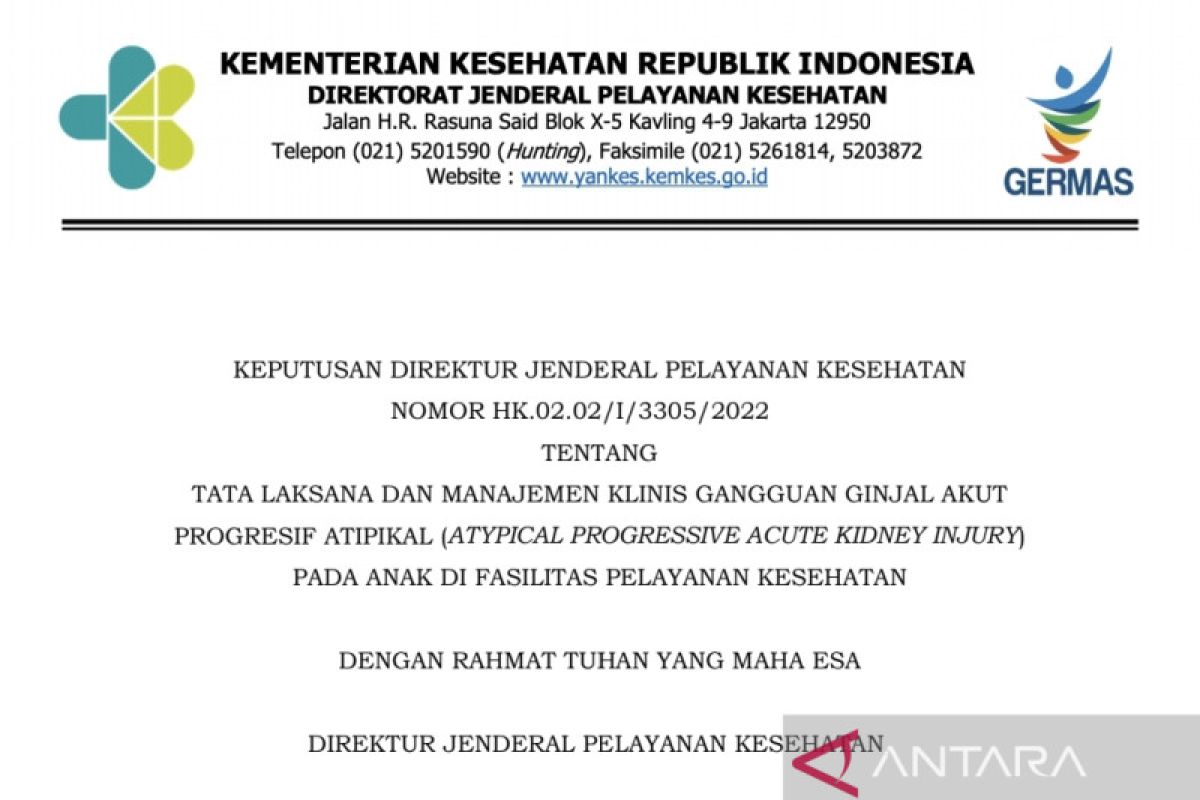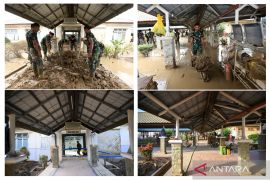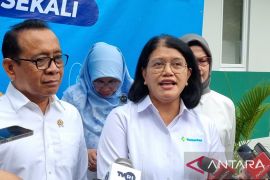The Health Ministry is actively monitoring and tracking the cases among the community to find acute kidney injury cases as early as possible.Jakarta (ANTARA) - The Health Ministry has issued the Clinical Management and Handling of Atypical Progressive Acute Kidney Injury as a guideline for treating pediatric patients affected by the disease in healthcare facilities across Indonesia.
"The acute kidney failure cases in children had started to be found in early 2022, however, it (the number of cases) surged in September 2022," acting director for referral health services at the ministry, Yanti Herman, said here on Tuesday.
According to the guideline, the handling of the disorder should start with a clinical diagnosis to confirm medical symptoms that indicate acute kidney injury, such as oliguria (decline in urine production) or anuria (absence of urine production).
“Rapid and sudden decline in renal filtration function is usually indicated by an increase in creatinine concentration -- or azotemia -- and/or a decrease (in urine volume) until there is no urine production at all,” the acting director informed.
If the results of the examination are positive for acute kidney failure, the patient must be treated in an intensive care room.
During treatment, the health facility must provide medication and continue to monitor the patient's condition, including fluid balance volume, diuresis, consciousness, Kussmaul breathing, and blood pressure. There must also be serial creatinine checks every 12 hours.
Related news: Early detection can prevent acute kidney failure in children: official
“During the treatment, patients with acute kidney failure must be given Intravenous Immunoglobulin (IVIG). Before (the IVIG) being given (to patients), the hospital must submit an application to the Directorate General of Pharmacy and Medical Devices of the Health Ministry," Herman informed.
As per records, the disease affects children in the age range of 6 months to 18 years—mostly toddlers, she added.
The initial symptoms are gastrointestinal infection and acute respiratory infection (ARI), while the typical symptom is a decline in the amount of urine output.
Hence, parents who have children in the affected age range have been urged to remain more vigilant by actively monitoring their children’s condition as well as the amount and color of urine. In addition, it is important to ensure that the children stay hydrated by drinking enough water.
"If your child suffers from the (initial) symptoms accompanied by declining urine volume or no urine (production) for six to eight hours during the day, immediately take your child to the nearest healthcare facility for further treatment," the acting director urged.
According to the Indonesian Paediatric Association (IDAI), the number of acute kidney injury cases in children has continued to increase since August 2022. The highest number of cases were recorded in September this year at 78.
"We ask the public to remain calm, always be careful, and stay alert. The Health Ministry is actively monitoring and tracking the cases among the community to find acute kidney injury cases as early as possible," Herman added.
Related news: IDAI probing factors behind rapidly progressive acute kidney disorder
Related news: Jakarta offers free checkup to curb acute kidney failure cases
Translator: Andi Firdaus, Uyu Liman
Editor: Suharto
Copyright © ANTARA 2022












